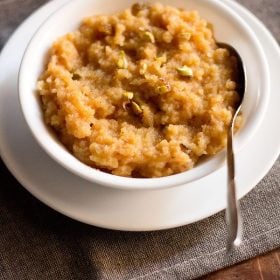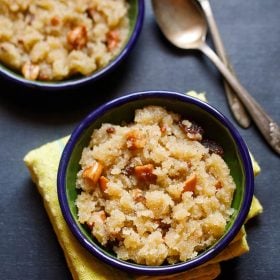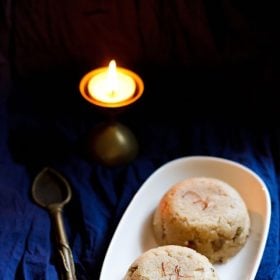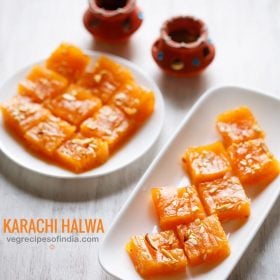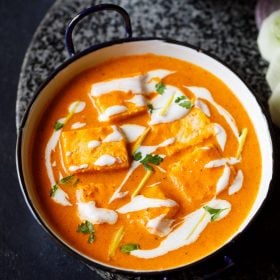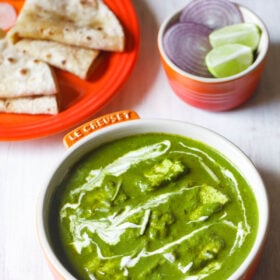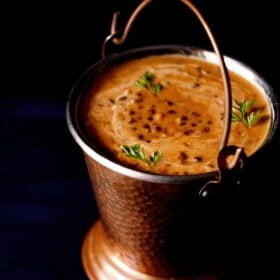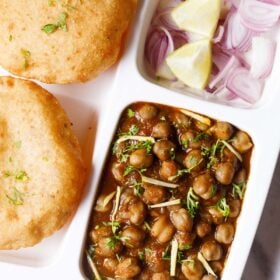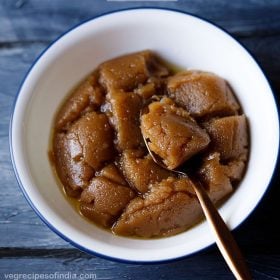Pertaining to the Hindi word ‘prasad,’ any dish that is offered to Gods and Goddesses, post which it may or may not be consumed by human beings is defined by this word. Since India has diversity in religions too, there are many dishes that are actually considered as temple or sacred food, used as prasads and naivedyams. One such preparation is Kada Prasad, also referred to as Karah Prasad, which is synonymous with Sikhs/Punjabis as it is served in gurudwaras. It is a rich, soft, velvety halwa made with whole wheat four (atta).
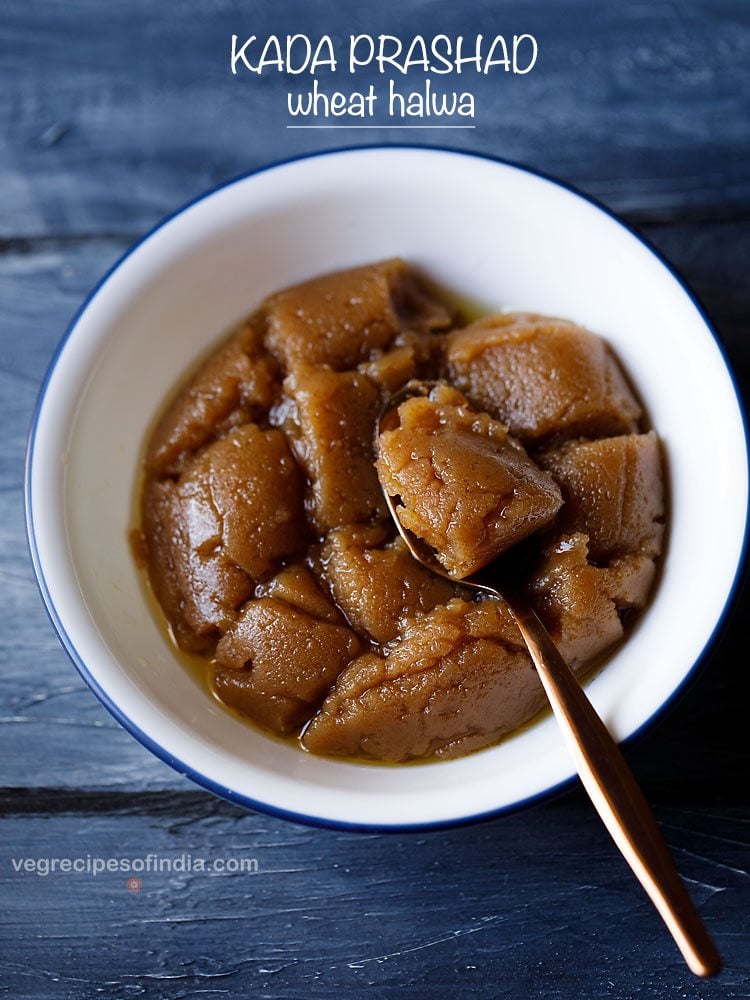
About Kada Prasad
According to Sikhism, the term ‘gurudwara’ means the ‘door to the guru.’ So, going by this concept, when you visit the guru, you can’t really return empty handed. The guru offers his sweet blessings to you. Kada Prasad signifies these blessings. Thus, one should also never say no to it, while being served at the gurudwara.
Since Karah Prasad is one of the most pious forms of food, it is not just an important offering in gurudwaras, but also other Sikh religious services and ceremonies around the world. The origin of the word ‘kada’ or ‘karah’ lies in the Sanskrit word ‘katdh,’ meaning a large pan used to boil or cook food.
Table of Contents
If you have ever visited any gurudwara, then you will vouch for the awesome taste of Kada Prasad that is served there. This prasad is prepared with a lot of devotion and continuous chanting of hymns so the taste of halwa is divine and has a different energy to it. So, whenever you visit any temple or gurudwara and offered with prasad, then always try to finish it and not waste it.
Karah Prasad is extremely rich and filling. However, if you are not hungry or are conscious of consuming too much ghee, you can humbly request the sewadar to serve you a smaller portion.
Without these chantings, the Karah Prasad will simply be your regular atta halwa. So, when making at home, if you are unable to chant the baanis, then you can also continuously chant ‘Waheguru’ from the beginning to the end of making the prasad.
Kada prashad is made with 4 ingredients – whole wheat flour, ghee, sugar and water. The proportion is 1:1:1:3 ratio of wheat flour, ghee, sugar and water respectively. Thus, it has a different taste than the usual Wheat Halwa we make at home.
You can also add less ghee in your homemade version of the Karah Prasad. For some texture in the halwa, a few tablespoons of sooji (rava) can be added. My mother-in-law adds it, but I mostly make it just with the wheat flour.
Serve Kada Prasad hot or warm. If you refrigerate, then just warm it lightly and then serve.
How to make Kada Prasad
Making sugar solution
1. Take 1 cup sugar in a sauce pan or pot. Use a sauce pan or pot which has a handle as its helps to add sugar solution to the atta mixture in the later part of the recipe.
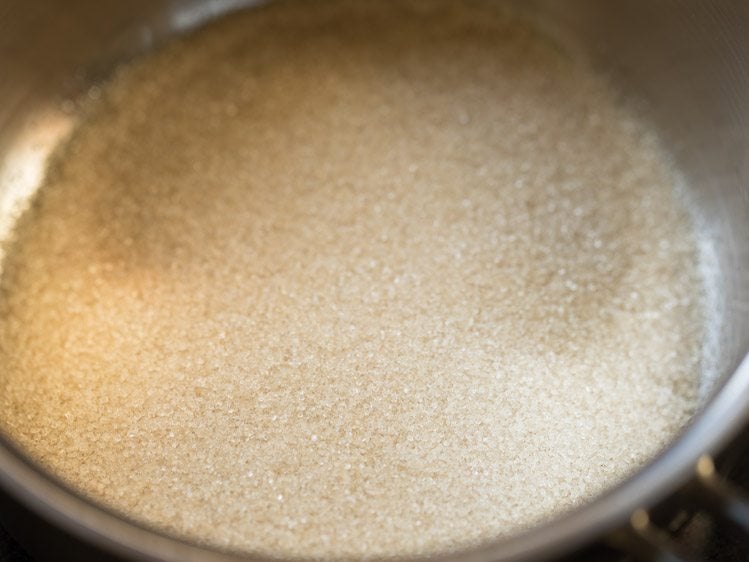
2. Add 3 cups water.
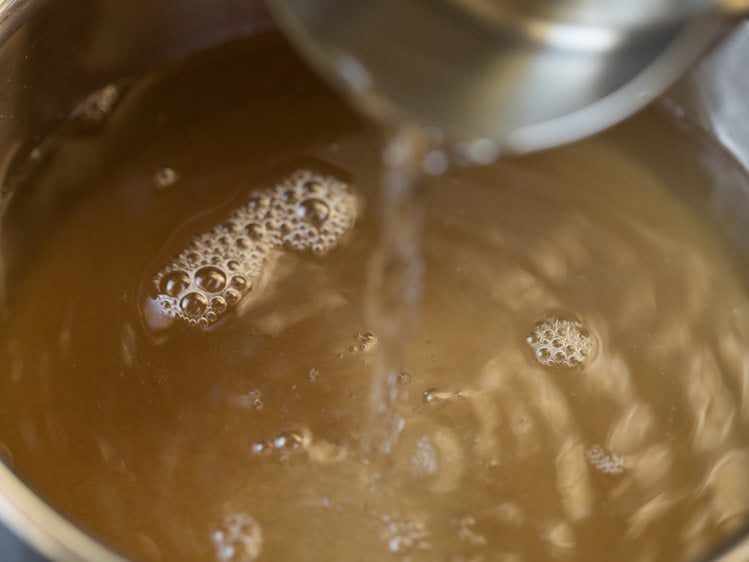
3. Keep the pan on stovetop on medium-low to medium heat.
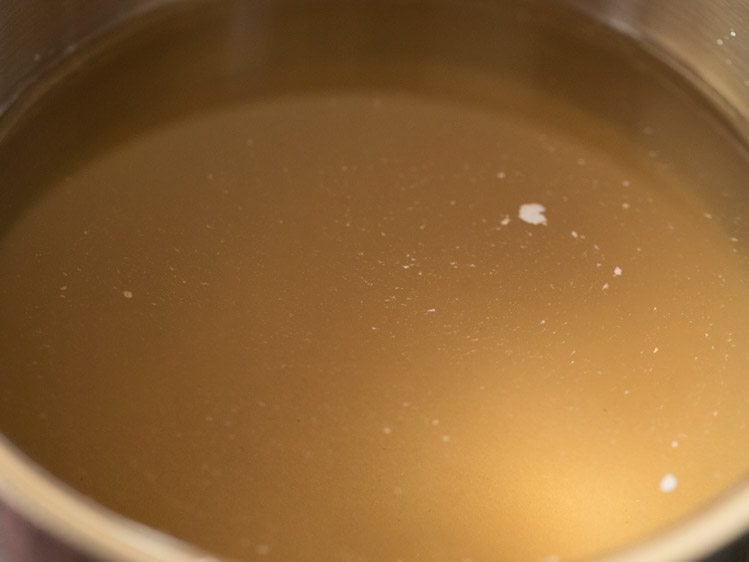
4. Stir the solution so that all the sugar dissolves.
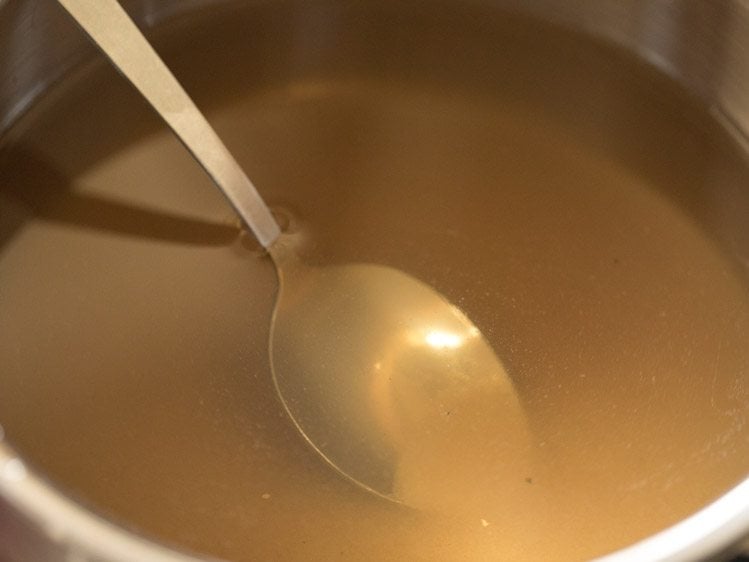
5. Begin to heat this sugar solution till it comes to a boil.
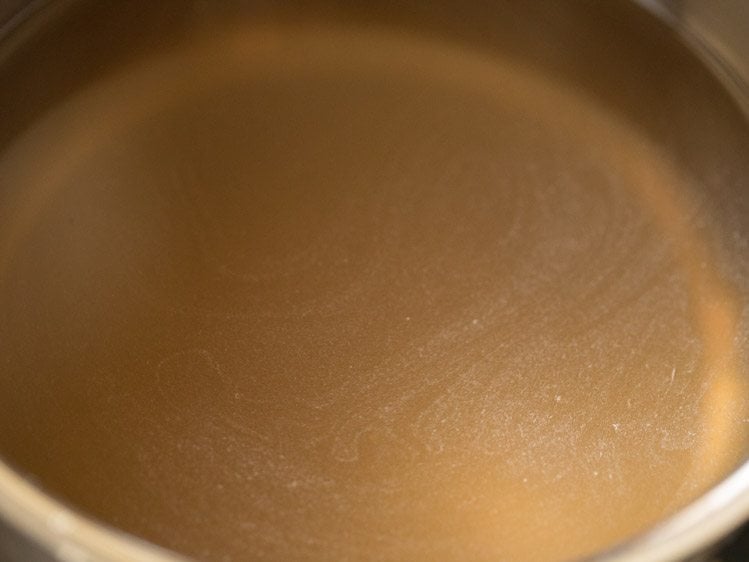
Frying whole wheat flour
6. Meanwhile, place a heavy bottomed kadai or pan on the stovetop on low heat. Keep both the pans on 2 burners simultaneously, so that once the wheat flour is fried, the sugar solution is also hot.
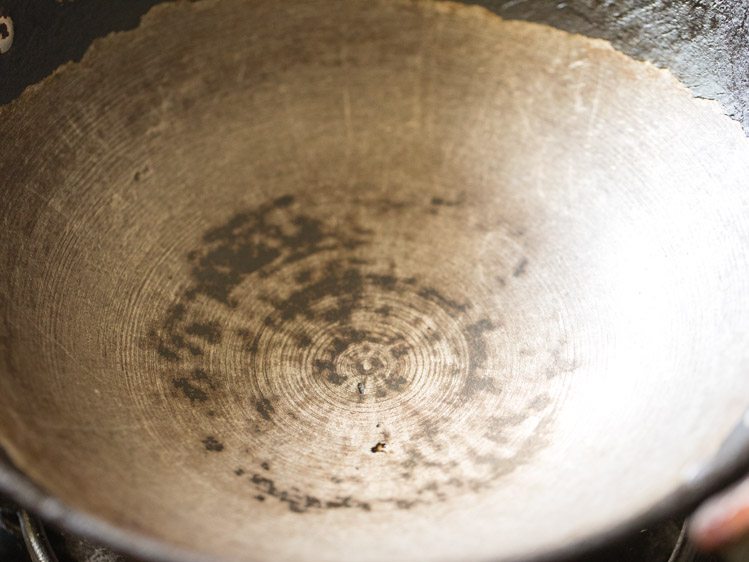
7. Add 1 cup ghee in the kadai. Use a heavy and thick bottomed kadai so that the atta does not get burnt.
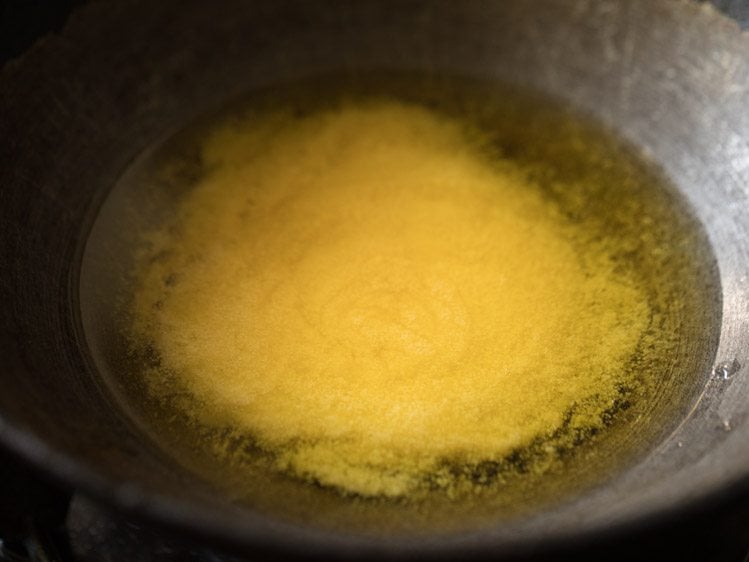
8. Let the entire ghee melt.
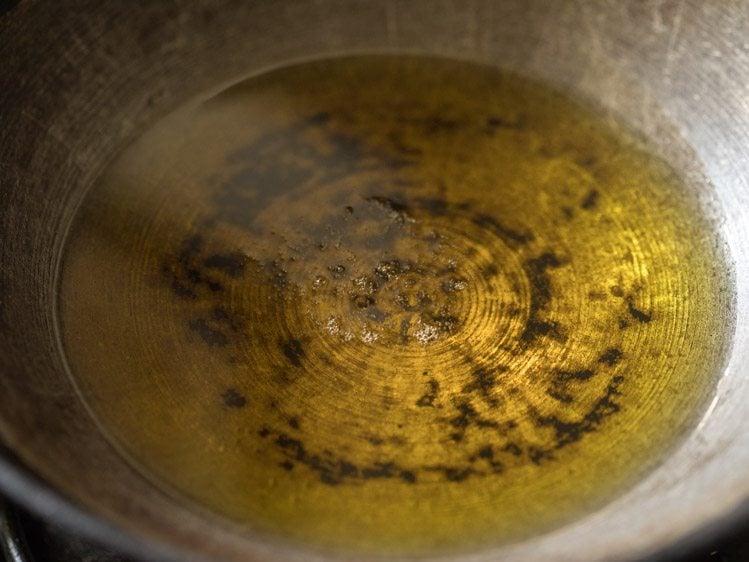
9. Then, add 1 cup whole wheat flour.
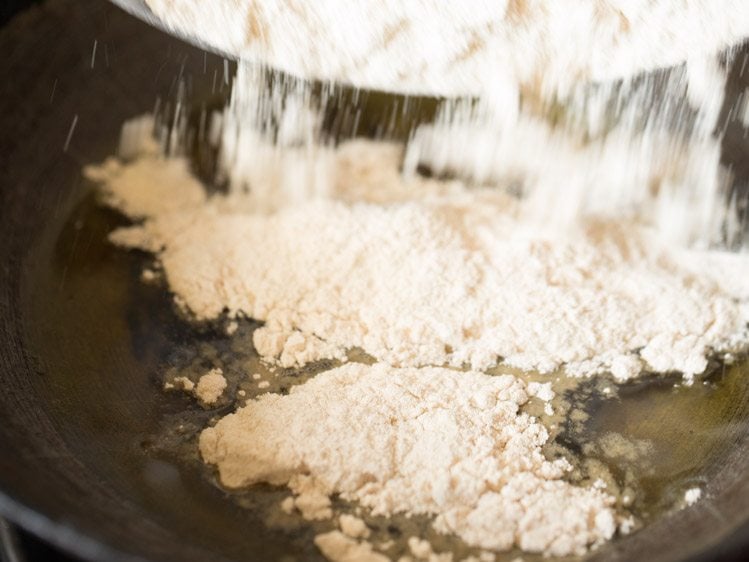
10. Stir well.
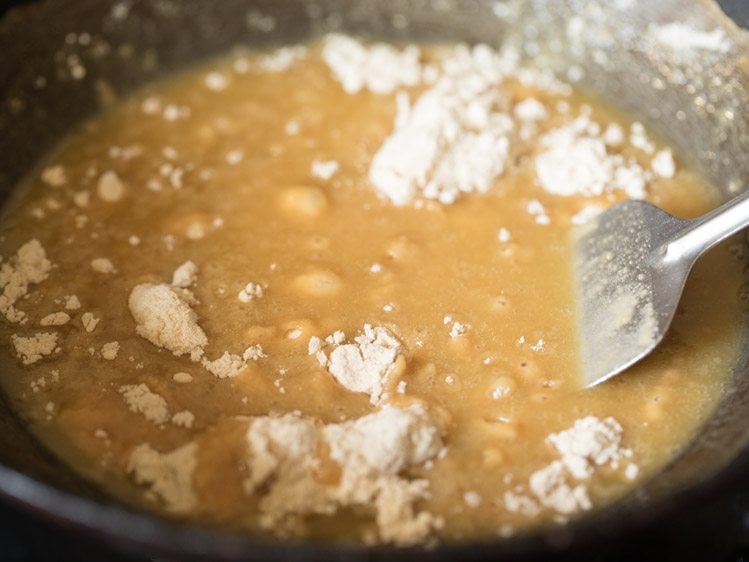
11. Mix the whole wheat flour (atta) with the ghee. Fry the atta on low to medium-low heat.
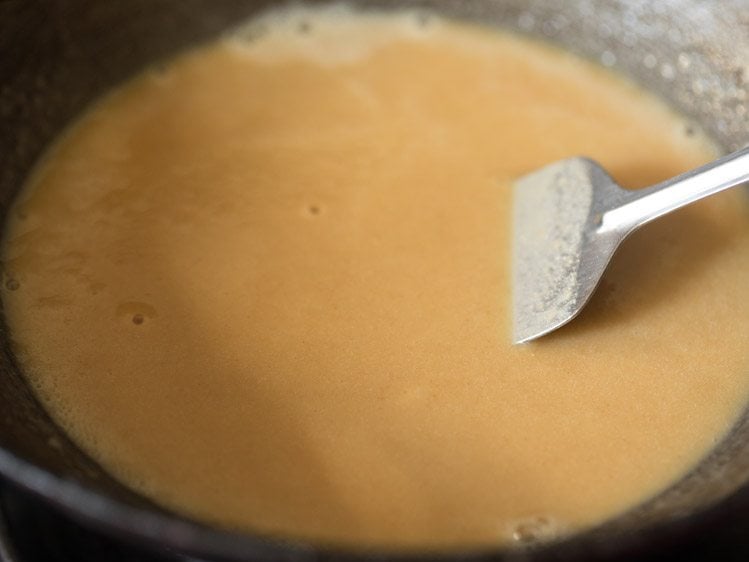
12. Mix very well to get a mixture without lumps.
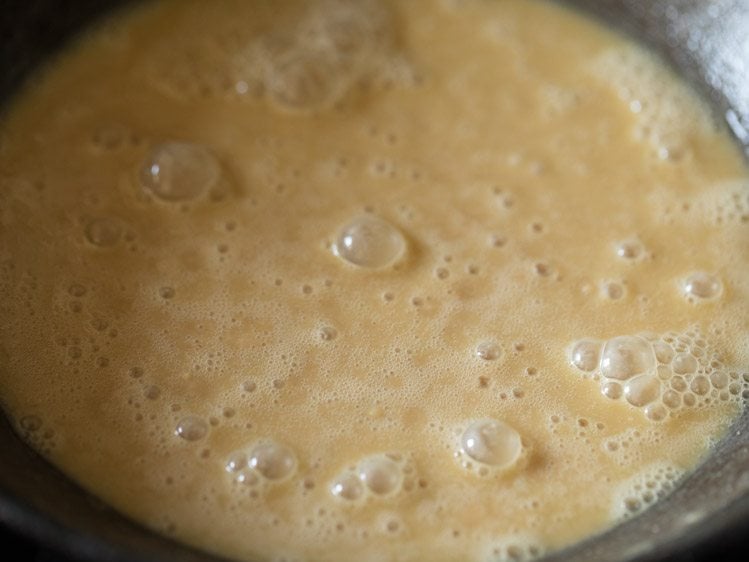
13. Meanwhile, the sugar solution will also come to a boil. Once the sugar solution boils, then switch off the heat. There are no thread consistencies formed in the sugar solution. The sugar solution just needs to come to a boil.
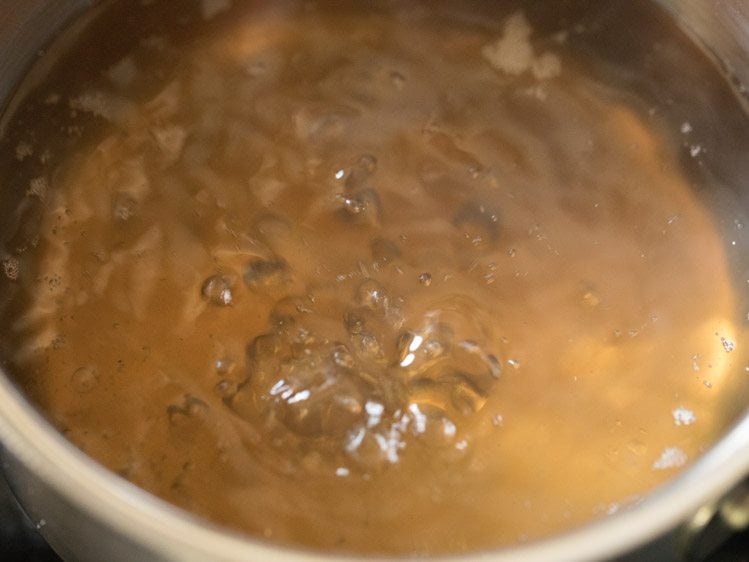
14. On low heat, begin to fry the whole wheat flour in ghee. Fry the atta, stirring non-stop.
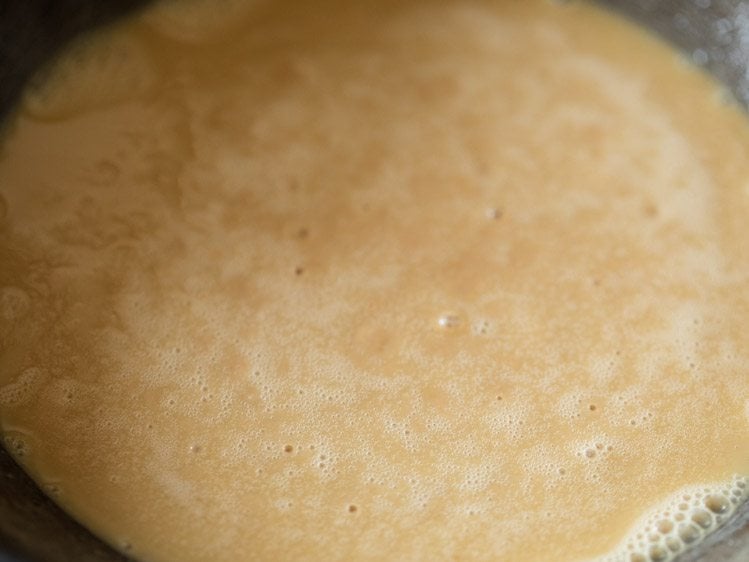
15. The color of the flour will change as you keep on stirring and cooking it. Keep stirring the flour, also to ensure even browning and so that it does not get burnt.
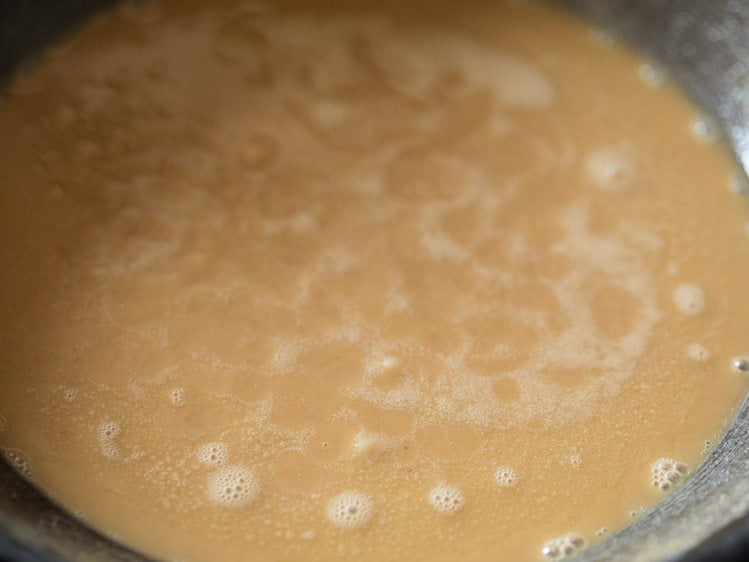
16. The atta should have a shade of dark golden color and a nutty fragrance. It took me 17 minutes for the atta to get cooked to the right color and texture in a heavy kadai. Timing will vary depending on the material, thickness, size of pan and the intensity of flame.
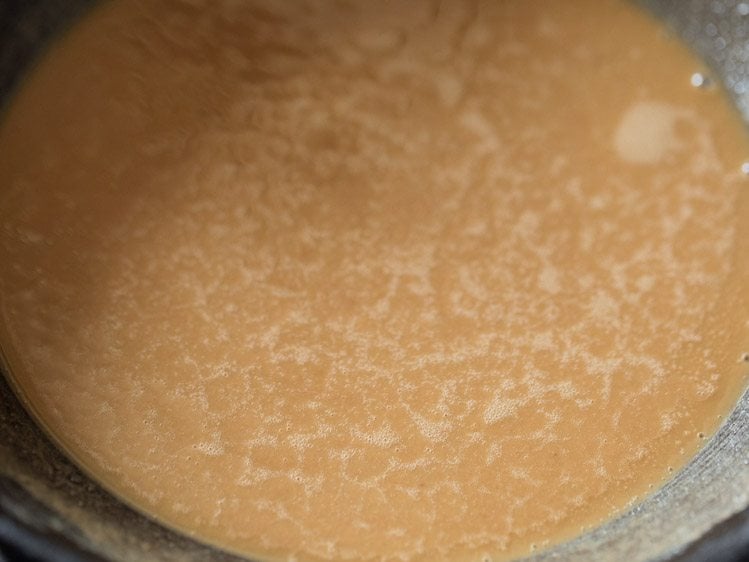
Making Kada Prasad
17. When the atta turns to a dark golden color, add the sugar solution in 2 parts. Be very careful as the mixture bubbles and splutters a lot. Note that the sugar solution needs to be hot when you add it to the roasted atta mixture.
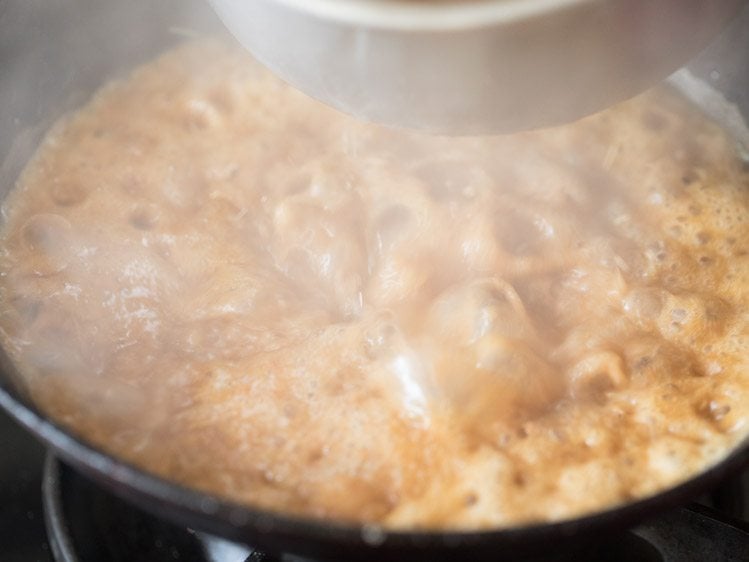
18. Mix and stir very well.
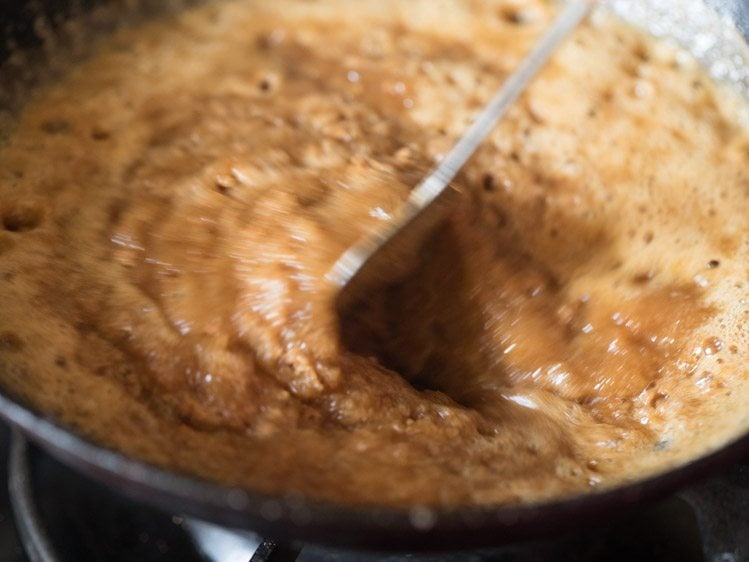
19. Then, add the second part of hot sugar solution.
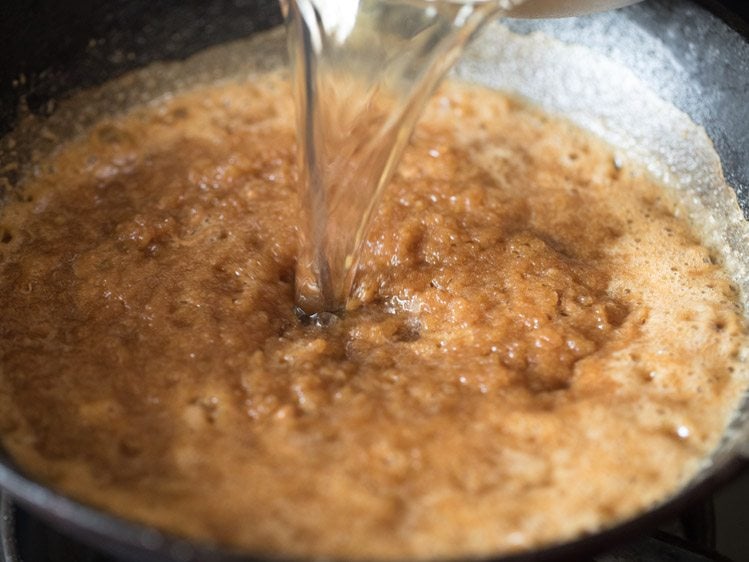
20. Continue to mix very well.
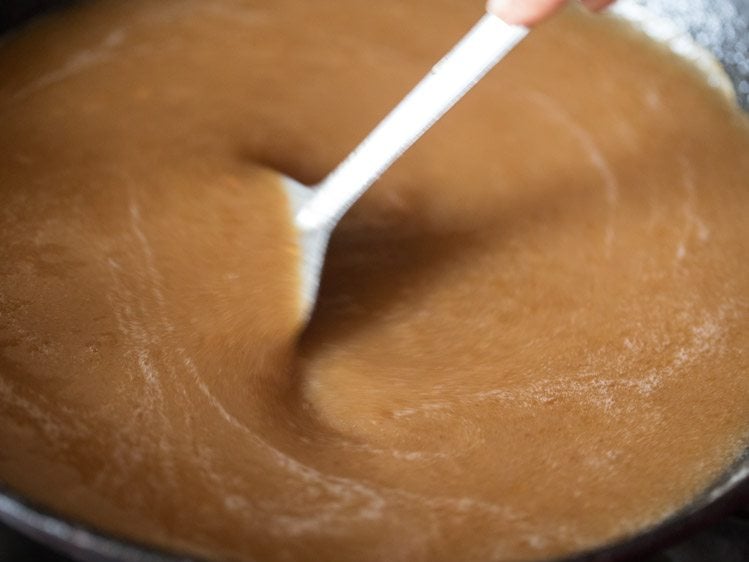
21. Cook the Kada Prasad, stirring non-stop.
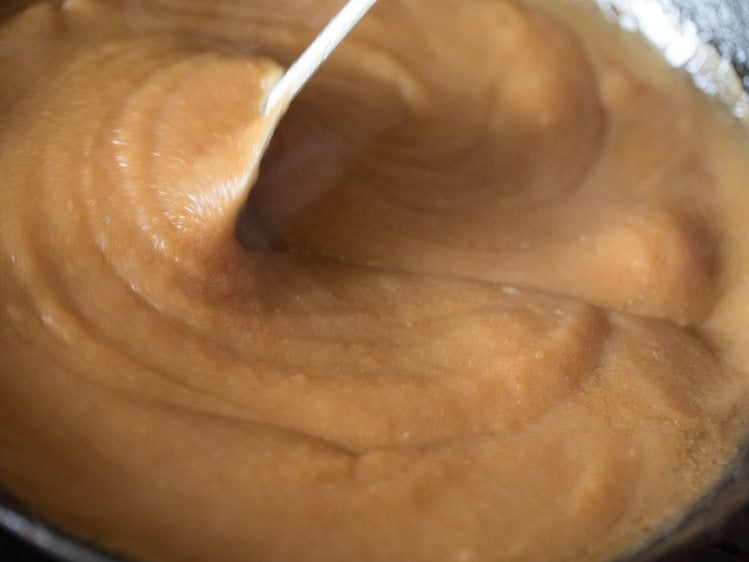
22. The mixture will thicken as it gets cooked. The Karah Prasad will also start releasing ghee.
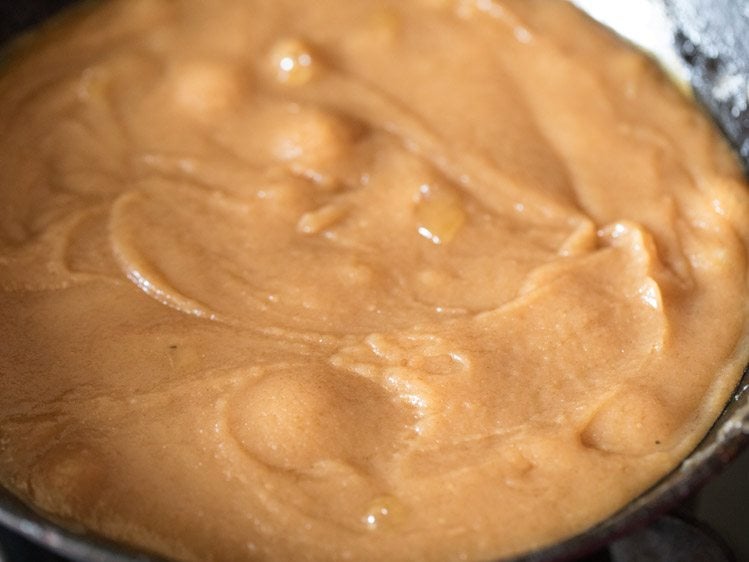
23. Continue to stir non-stop and cook till the mixture becomes one mass and leaves the sides of the pan.
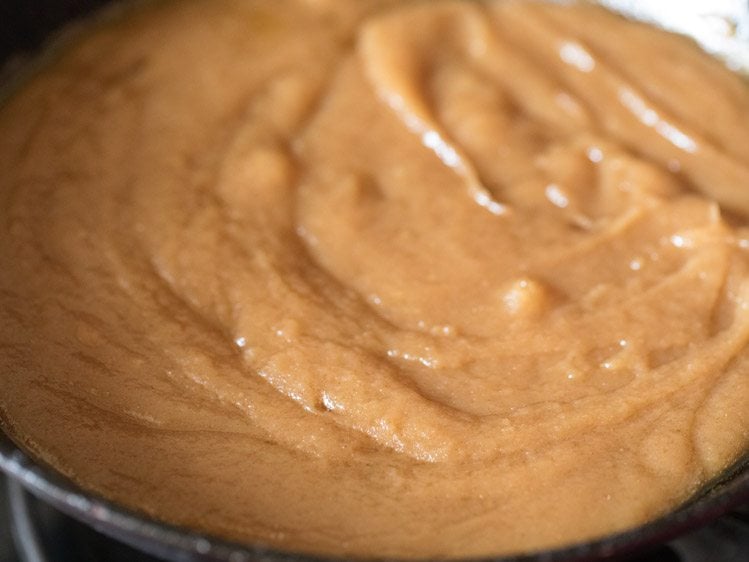
24. The consistency and the color of the Karah Prasad will change.
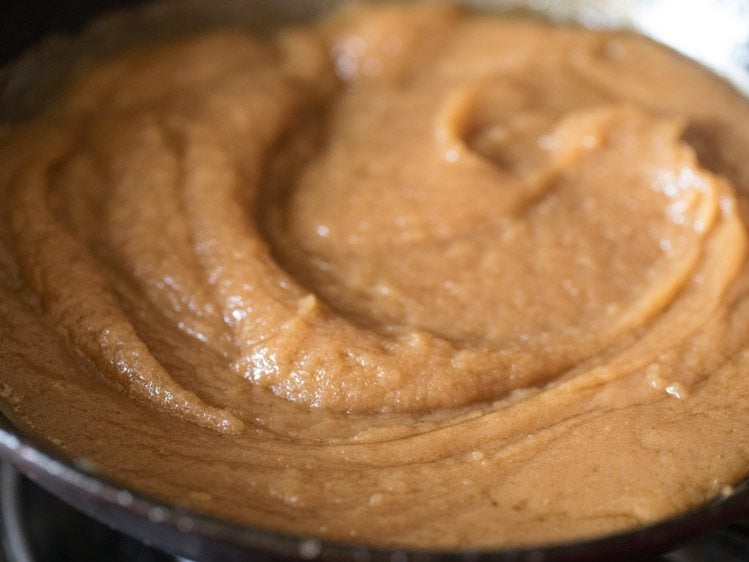
25. When it has a thick pudding like consistency, then switch off the heat. After adding sugar solution, I cooked the halwa for 10 minutes on low-medium heat, stirring continuously. Timing will vary with the kadai thickness, size and intensity of the flame. Note that on cooling, the atta halwa will thicken more. At this step, you can also add some raisins or dry fruits like almonds or cashews.
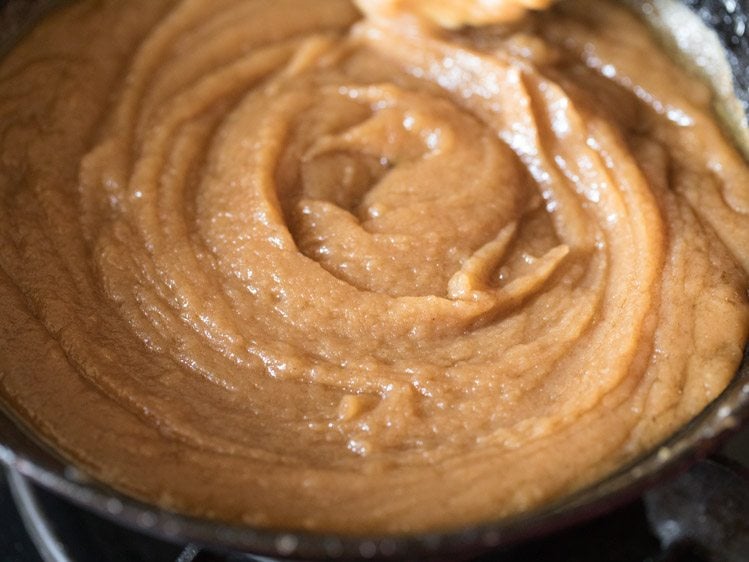
26. Serve Kada Prasad hot or warm.
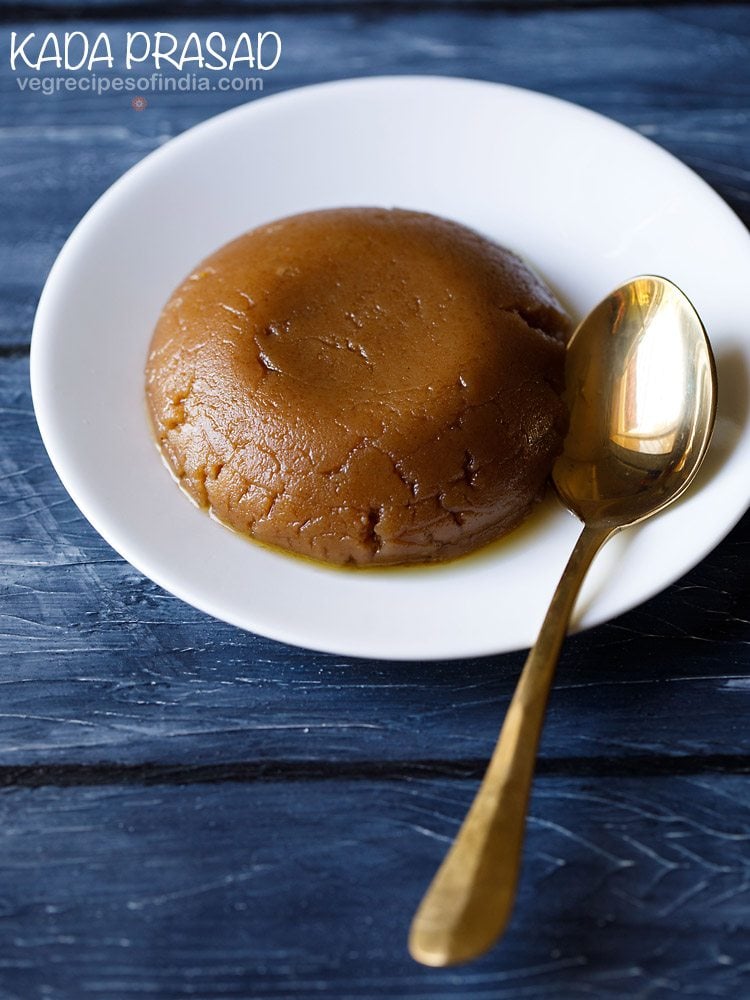
Essentials of Kada Prasad
As mentioned earlier, the basic recipe of a Kada Prasad has just 4 ingredients in it – whole wheat flour (atta), sugar, ghee and water. The proportion between the ingredients (except water), is also always equal.
Apart from this, the following are some other points that need to be kept in mind while cooking this holy dish:
- It has to be made in a kitchen or a place which is thoroughly cleaned and has high hygiene standards. This is to ensure the sanctity.
- The person in charge of the preparation should be neatly dressed and be well-versed with the proceedings in a set manner.
- While cooking the dish, it is also imperative to chant the 5 baanis or hymns, as it is one of the primary ingredients in forming the essence of Karah Prasad. The bani adds a subtle spiritual and devotional energy to the halwa, which eventually becomes the prasad.
- Once done, the prasad is then transferred in a larger tray typically made of silver. This is covered with a clean white piece of cloth and taken to the place or site of assembly where the Guru Granth Sahib (religious scripture of Sikhism) too is present.
- Before the service, it is customary to touch the prasad with the tip of a sword. This is followed by the distribution of the Kada Prasad by volunteers. They make sure that the prasad is served to all, without any discrimination between castes or statuses.
Expert Tips
- It is best to cook this halwa in a heavy, thick bottomed pan or kadai so that the whole wheat flour does not get burnt. You have to also stir and roast it continuously to brown evenly.
- Ensure that the sugar solution just comes to a boil and not form any thread consistencies in it, before being added to the roasted atta.
- You can cook this recipe in less ghee when making at home. You can also add some cream of wheat (sooji/rava) in the recipe to get a texture.
- The timing to roast the wheat flour to a perfect dark golden color with a nutty aroma will depend on the thickness, material, size of the pan and intensity of the flame.
- You have to cook the prashad till it reaches a pudding-like consistency. The halwa also thickens more after cooling.
- Once cooked, you can also add some raisins or dry fruits like cashews and almonds to it.
More Halwa Recipes To Try!
Halwa Recipe
Halwa Recipe
Halwa Recipe
Halwa Recipe
Please be sure to rate the recipe in the recipe card or leave a comment below if you have made it. For more vegetarian inspirations, Sign Up for my emails or follow me on Instagram, Youtube, Facebook, Pinterest or Twitter.
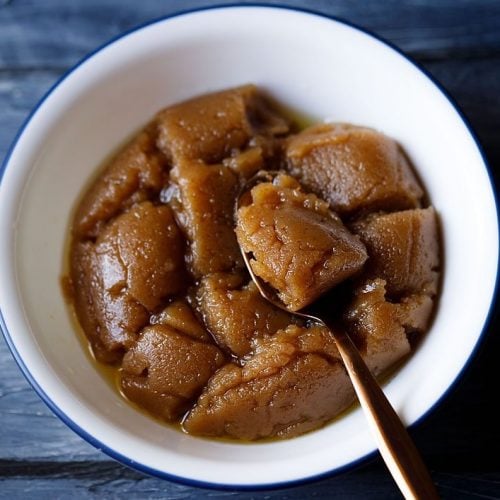
Kada Prashad Recipe
Ingredients
- 1 cup atta or 120 grams whole wheat flour
- 1 cup sugar or 200 grams sugar
- 1 cup Ghee
- 3 cups water
Instructions
making sugar solution
- Take 1 cup sugar in a sauce pan or pot. add 3 cups water. Use a sauce pan which has a handle as its helps to add sugar solution to the atta mixture in the later part of the recipe.
- Keep the pan on stove top on a medium-low to medium flame.
- Stir the solution so that all the sugar dissolves.
- Heat this sugar solution till it begins boiling.
- Once the sugar solution boils, then switch off the flame.
frying wheat flour for kada prashad
- Meanwhile when you keep the sugar solution to boil, also place a heavy bottomed kadai or pan on another stove top on a low flame.
- Add 1 cup ghee. let the entire ghee melt.
- Then add whole wheat flour.
- Stir and mix the whole wheat flour (atta) with the ghee.
- Mix very well to get a mixture without lumps.
- On a low flame begin to fry the whole wheat flour in ghee.
- Fry the atta stirring non-stop.
- The color of the flour will change as you keep on stirring and cooking it. Keep on stirring the flour to ensure even browning.
- The atta or whole wheat flour should have a shade of dark golden color and should have a nutty fragrance.
making kada prashad
- When the atta turns to a dark golden color, add the sugar solution in two parts. Be very careful as the mixture bubbles and splutters a lot.
- Mix and stir very well.
- Then add the second part of hot sugar solution. continue to mix very well.
- Now cook the kada prashad stirring non-stop.
- The mixture will thicken as it gets cooked.
- The halwa will also start releasing ghee.
- Continue to stir non-stop and cook till the whole mixture becomes one mass and leaves the sides of the pan.
- The consistency of the kada prasad will also change as well as the color.
- When the kada prashad has a thick pudding like consistency, then switch off the flame.
- Serve kada prashad hot or warm.
Nutrition Info (Approximate Values)
This Kada Prasad Recipe from the archives was first published in May 2017. It has been updated and republished in March 2024.
